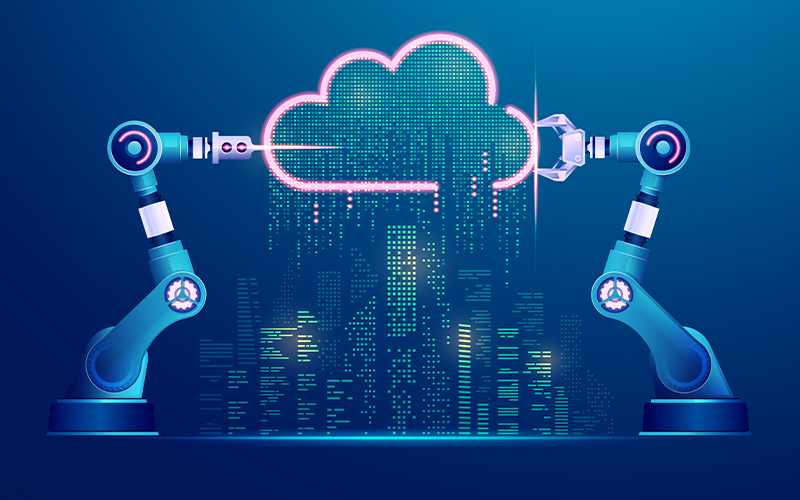BUSINESS TRANSFORMATION
What is digital transformation in marketing?
The digitisation of enterprises has impacted every aspect of business. Today’s digital enterprise has gone far beyond a paperless office. The digital disruption of business has created completely new business models and customer expectations. Every business function is impacted by digital transformation, and marketing is no exception. The digital transformation of marketing involves a proactive focus on digital channels to improve marketing strategies, customer reach and overall customer experience. Creating a future-ready digital enterprise requires companies to rethink marketing strategies and sync them with business and customer strategy.
Digital marketing has been around for a long time and is nothing new. However, digital media, the pervasiveness of the internet, online presence of consumers and companies combined with emerging technologies such as Artificial Intelligence (AI), Machine Learning (ML) and advanced analytics have created entirely new marketing opportunities. When done right, the digital transformation of the marketing domain can bring about profound changes to marketing strategies and approaches, thereby increasing the effectiveness of campaigns, building brand awareness, and increasing ROI for the company.
Achieving a marketing makeover
To bring about a digital transformation in marketing, companies need to leverage technology for marketing products and services, operations, customer interactions and pretty much every other aspect of the business. Involvement of top management is necessary to make strategic technology investments based on business and marketing goals. Digital marketing cannot operate in its own silos. Backend systems must be integrated with customer data platforms (CDP) so that customer journeys can be traced end-to-end. With a holistic view of the data, companies can garner deep insights into customer behaviour, and create personalised marketing campaigns with an apposite customer experience.
With multi-stage interactivity and advanced analytics marketers now have control over various stages of the marketing funnel, and marketing is no longer a guessing game. In digital marketing, the phasing out of third-party cookies has forced brands to rely more and more on first-party data. This data is highly reliable and relevant to companies and can be used by marketers for various purposes - understanding consumer behaviour, tracking purchases or interests, making relevant suggestions for purchases, and so on. With access to precise data, and identification of the right metrics, marketers can study the effectiveness of campaigns, and tweak them as necessary.
The digital medium gives marketers the opportunity to connect with potential customers. Live streams, reels and stories, comments and feedback allow consumers to directly interact with a brand, making brands aware of what consumers want. Virtual Reality (VR) and Augmented Reality (AR) allow for immersive experiences that are already making inroads with the digitally savvy consumer. For instance, the ability to virtually try on a pair of shoes to see how it looks or visualising a rug on the floor makes it easier to convert potential customers to buyers. Using chatbots helps companies provide 24x7 availability where consumers can get automated responses to frequently asked questions. Brands can also use intelligent systems to determine where consumers are stuck or need help with purchases, allowing for human intervention when necessary.
While most companies have a digital presence on various social media platforms, they need to relook at how best to leverage these platforms to promote their marketing efforts. In the digital world, a continuous evaluation of what works and doesn’t will be necessary to make optimum use of social media platforms. This constant iteration contradicts the traditional static approach to marketing, which was characterised by detailed research, and creating long and short-term strategies. In the time to come, agility will be necessary in the marketing game.
Automation is the foundation of the digital transformation of marketing. With automatic program execution, digital marketing campaigns, connected systems and advanced analytics, companies can analyse marketing campaigns, and make data-driven decisions to refine digital marketing programs. The digital transformation of marketing* will be enabled by alignment of business and marketing goals, investment in technology, platforms, and infrastructure, exploring new techniques with an experimental approach, constant review of marketing programs, and an agile mindset.
*For organizations on the digital transformation journey, agility is key in responding to a rapidly changing technology and business landscape. Now more than ever, it is crucial to deliver and exceed on organizational expectations with a robust digital mindset backed by innovation. Enabling businesses to sense, learn, respond, and evolve like a living organism, will be imperative for business excellence going forward. A comprehensive, yet modular suite of services is doing exactly that. Equipping organizations with intuitive decision-making automatically at scale, actionable insights based on real-time solutions, anytime/anywhere experience, and in-depth data visibility across functions leading to hyper-productivity, Live Enterprise is building connected organizations that are innovating collaboratively for the future.






